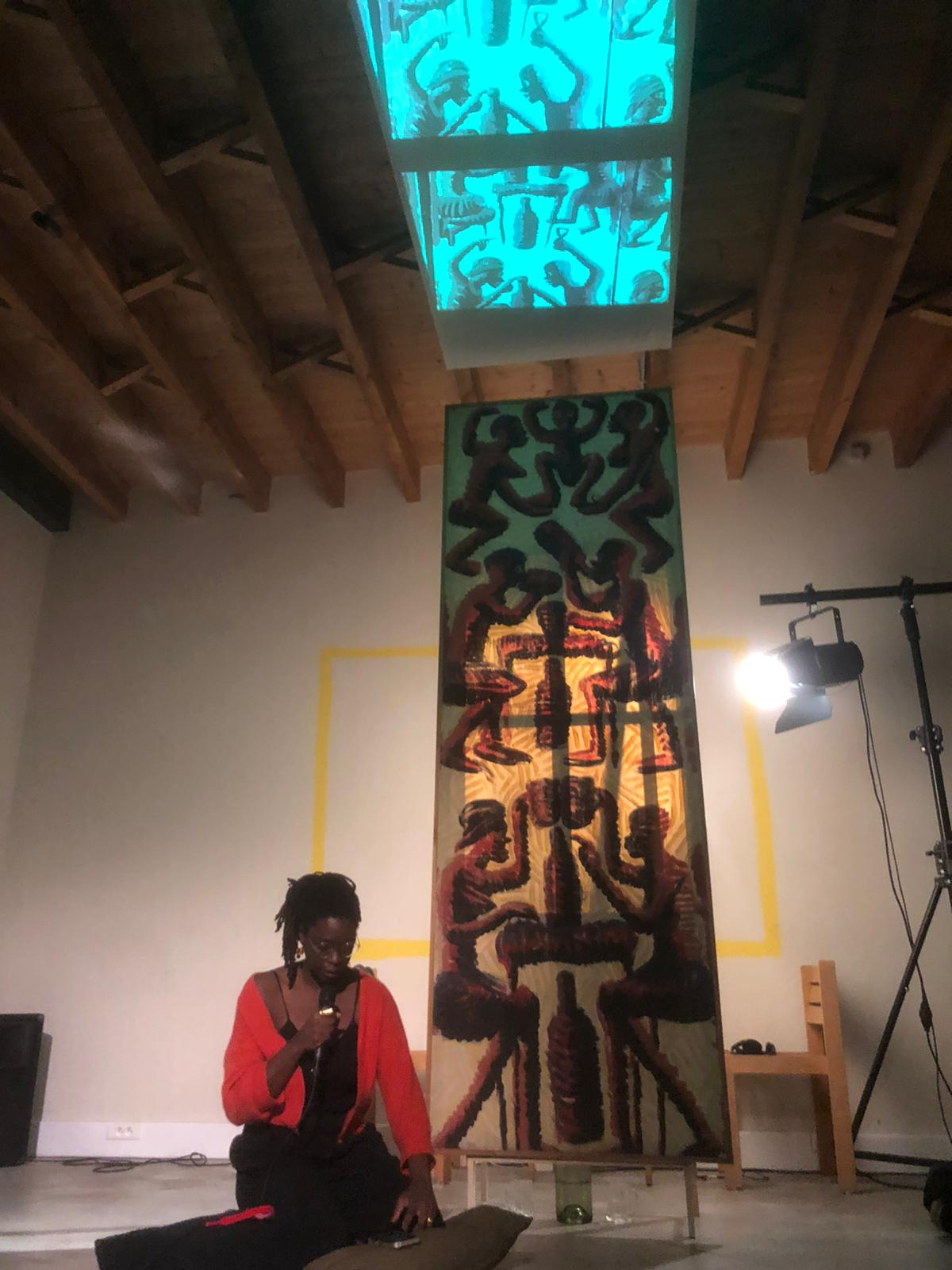
Black Conservative Tales.
is an ongoing research project focused on writing a conservation-restoration protocol for artworks that places at the heart of its practice the care of the Black experience of art objects that have emerged from a colonial trajectory..
TRACER
an art collective with
*
Sarah Van Lamsweerde
*
Nizar Saleh
*
Esther Mugambi
*
Emmanuelle Nsunda
*
Jesse Van Winden
*
Emily Hardick
* Sarah Van Lamsweerde * Nizar Saleh * Esther Mugambi * Emmanuelle Nsunda * Jesse Van Winden * Emily Hardick





from
CHANGWE YETU
a performance
Changwe Yetu, a performance commissioned by UNION-MINIERE of HAUT KATANGA for Belgian workers based in the Katanga region. It is a large-scale production bringing together a hundred dancers selected from the Katanga/Kasaï region, musicians, a choir of young singers from Lubumbashi led by J. Kiwélé, technicians in charge of building the stage and set, costume designers, all under the direction of Jean-Marc Landier, assisted by a single Congolese producer, Joseph Kisimba. In 1958, the complete production traveled to Brussels as part of the World’s Fair.
and
PANNEL No 8
an archive/witness
Panel No. 8 is a set piece from the performance Changwe Yetu, painted by the now-renowned Mwenze Kibwanga in 1956. It was originally part of a collection of 33 panels, and it is the only one— to our knowledge— that has survived to this day.
The collective TRACER gathered around this panel to reflect on several themes, such as the pressure from the global North on the artistic production of formerly colonized communities; the links between the dynamics of mineral resource extraction and the circulation of artworks from these territories; and finally, the conservation of art objects directly produced by colonialism.
to
LUBUMBASHI/
MAKWACHA
a residency
In April 2023, Sarah Van Lamsweerde, Emily Hardick, and Emmanuelle Nsunda traveled to Lubumbashi to conduct research on the origins of the Changwe Yetu performance. The project was carried out in collaboration with the Pichca workshops, who welcomed them with open doors.
Among the many meetings with local artists and cultural workers, the visit to the village of Makwacha was pivotal in shaping the direction of their research on the conservation/restoration of Panel No. 8. Makwacha is a village located 50 km south of Lubumbashi, where the women of the village practice mural painting on the houses. Discussions with the village chief, Fernande Munsha Sebelwa, helped initiate a reflection on rethinking conservation-restoration practices outside of Western ethics, which will be developed in the project Black Conservative Tale.
BLACK CONSERVATIVE TALES
a research lab.
This artistic research project aims to propose a restoration protocol for art objects that carry a Black experience.
The Black experience in artistic production is the trace left by a Black artist’s relationship with the world within one of their creations.
We refuse to limit these artists solely to their racial identity and confine their work to a colonial (or post-colonial, or neo-colonial) timeline. However, we acknowledge that, in the current state of the world, their connection to the continent or the Black diaspora conditions their access to various means of production, and thus the ultimate purpose of their work.
Despite this, Black artists have never ceased to be productive and to renew distinct aesthetic repertoires.
The conservation-restoration of artworks is a well-established discipline, governed by strict ethical codes.
We propose an alternative by updating the social function of the objects being treated and placing it at the core of the practice.
The materiality of the artwork serves the social cohesion of the community from which it originates, and any intervention is meant to generate a positive impact on that community.
Lastly, we prioritize the sustainability of the actions taken by focusing on the transmission of knowledge and skills rather than the material conservation of the objects.
To conserve and transmit the Black experience is an act of resistance, a purely decolonial practice aimed at sustainably restoring the dignity of the affected communities.







